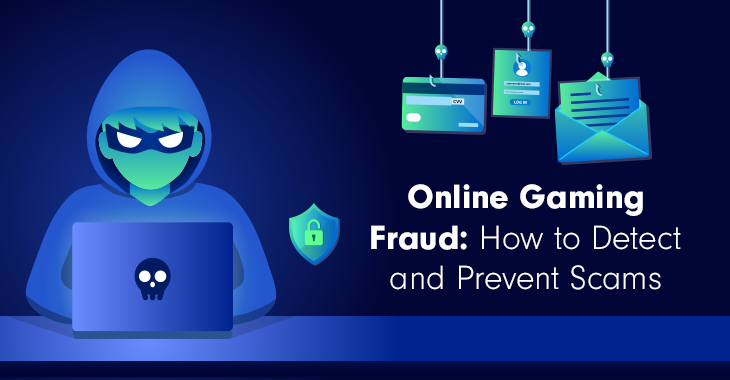The rise of online gaming has revolutionized entertainment, offering players worldwide an engaging platform to connect, compete, and collaborate. However, with this surge in popularity comes an unfortunate byproduct: online gaming scams. Fraudsters continuously devise schemes to exploit gamers, making it crucial for users to stay vigilant and informed. This guide will delve into common online gaming scams, their tactics, and measures to safeguard yourself.
Common Online Gaming Scams
1. Fake In-Game Currency and Items
Scammers often lure players by promising discounted or free in-game currency, rare skins, or exclusive items. Victims are asked to share account details or make payments, only to receive nothing in return.
2. Phishing Websites and Emails
Phishing scams involve fraudulent websites or emails mimicking legitimate gaming platforms. These scams aim to steal login credentials or payment information by directing users to fake login pages.
3. Account Takeovers
Hackers use brute force or phishing techniques to gain access to gaming accounts. They may sell these accounts or use them to scam others.
4. Cheating Software Scams
Gamers looking for a competitive edge might be tempted to download cheats or hacks. These downloads often contain malware, compromising devices and personal information.
5. Fake Tournaments and Giveaways
Fraudsters advertise fake gaming tournaments or giveaways with lucrative prizes. To participate, victims must pay an entry fee or provide sensitive information.
6. Impersonation Scams
Some scammers impersonate developers, moderators, or fellow gamers to gain trust. They may request money, account details, or in-game items under the guise of official communication.
Measures to Avoid Online Gaming Scams
1. Strengthen Account Security
- Use strong, unique passwords for your gaming accounts.
- Enable two-factor authentication (2FA) wherever possible.
- Avoid sharing login credentials with anyone.
2. Verify the Source
- Double-check URLs before logging in or making payments. Official gaming sites often use secure “https” protocols.
- Avoid clicking on suspicious links from emails or messages, even if they appear legitimate.
3. Be Cautious of Unrealistic Offers
- If an offer seems too good to be true, it likely is.
- Avoid purchasing in-game items or currency from unofficial sources.
4. Research Before Participating
- Verify the legitimacy of tournaments and giveaways by checking official announcements or trusted community platforms.
- Read reviews about third-party services before engaging with them.
5. Monitor Financial Transactions
- Use secure payment methods like PayPal or credit cards that offer fraud protection.
- Regularly review your bank statements for unauthorized transactions.
6. Stay Informed
- Keep up with updates from the gaming platform regarding new security measures or known scams.
- Join reputable gaming communities to learn from other players’ experiences.
7. Use Antivirus and Anti-Malware Software
- Install reliable antivirus software to protect against malicious downloads.
- Regularly scan your device for malware or spyware.
What to Do if You’re Scammed
- Report the incident to the gaming platform immediately.
- Change your account credentials and enable 2FA.
- If financial information was compromised, notify your bank or payment provider.
- Share your experience in gaming forums to warn others.
Final Thoughts
The gaming world is filled with thrilling opportunities, but it’s not without its risks. By staying informed and adopting preventive measures, you can enjoy a safer gaming experience. Remember, awareness is your best defense against online gaming scams.














